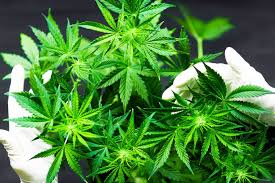
A new study has found the first experimental evidence that the compound can increase longevity and fight signs of aging.

A new study of older adults suggests it can lead to brain shrinkage and cognitive issues, irrespective of how much exercise you're managing to fit in.

Americans, especially those born between 1966 and 1986 (largely so-called generation X), have probably suffered from an additional 151 million mental health disorders that would not have occurred without the use of leaded petrol.

Knowing how high-potency cannabis alters gene activity may bring us closer to understanding why some users develop psychosis.

A meta-analysis of existing research shows exposure to nature, even as little as 10 minutes, could benefit those with diagnosed mental illness.

Research is showing that many of our contemporary problems, such as the rising prevalence of mental health issues, are emerging from rapid technological advancement and modernisation.

When we are in a state of flow, it is likely that we are spending less time ruminating over our lives or worrying about the future.

Tetrahydrocannabinol (THC) concentrations in cannabis products have increased over the years, from around 2%-4% to 15%-24% now. The impact of high-potency products must be taken seriously.

Green spaces with high natural diversity have more mental health benefits than those with low natural diversity.

Hugs and other forms of physical touch can help with physical and mental health in people of all ages, according to a new review of 212 previous studies.

Researchers have discovered that people born in more recent decades have larger brain volumes compared to those born in earlier decades.

Recent research showed nature can regulate our sense of time.

Living in poorer neighborhoods is linked to higher risk of dementia and faster brain aging, according to new research.

A new study from the University of Exeter, UK shows that playing an instrument into old age is "associated with significantly better performance in working memory and executive function".

Research suggests AI could diagnose depression from health records or even social media posts. And it could overcome GP bias when it comes to prescribing medications.